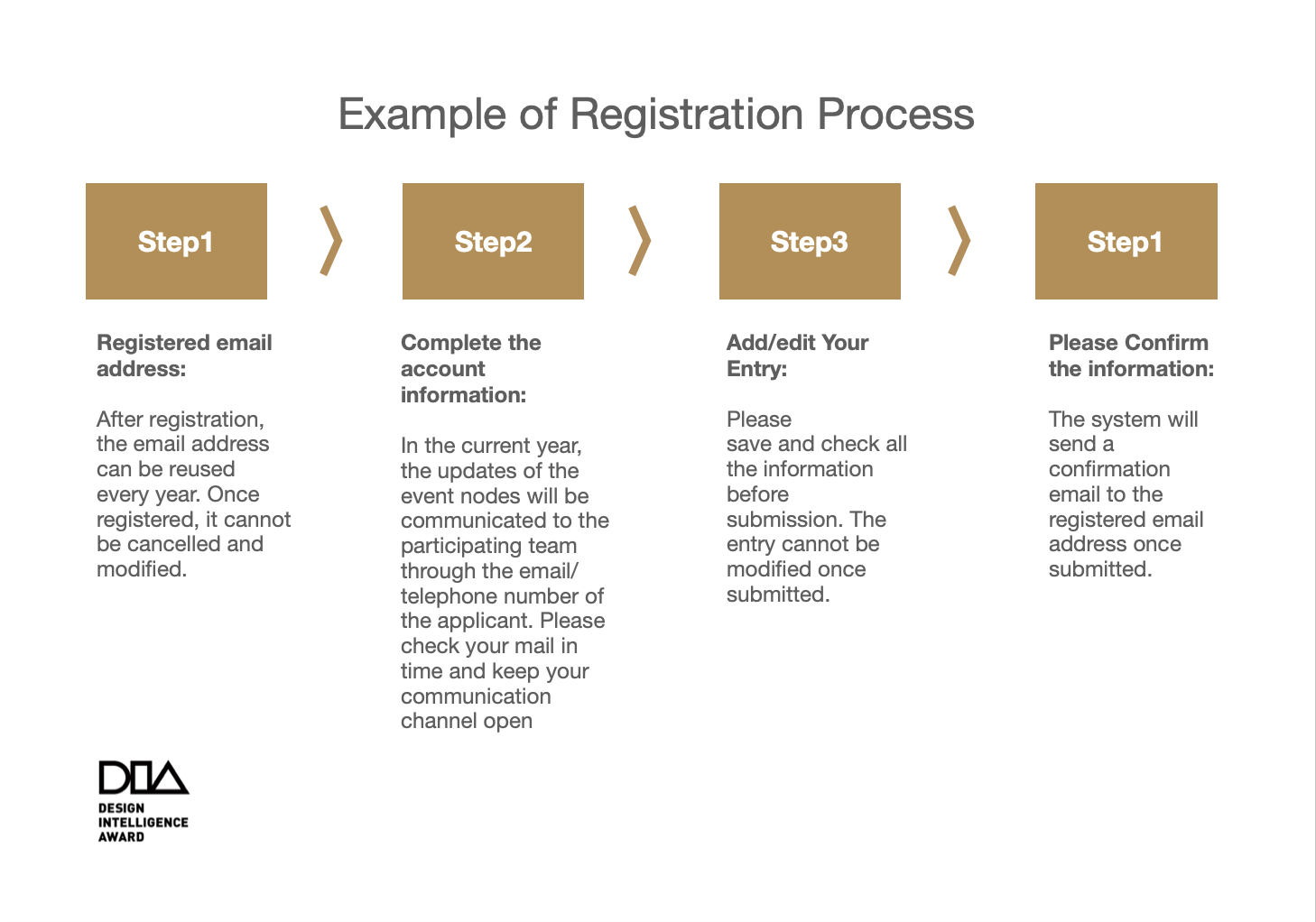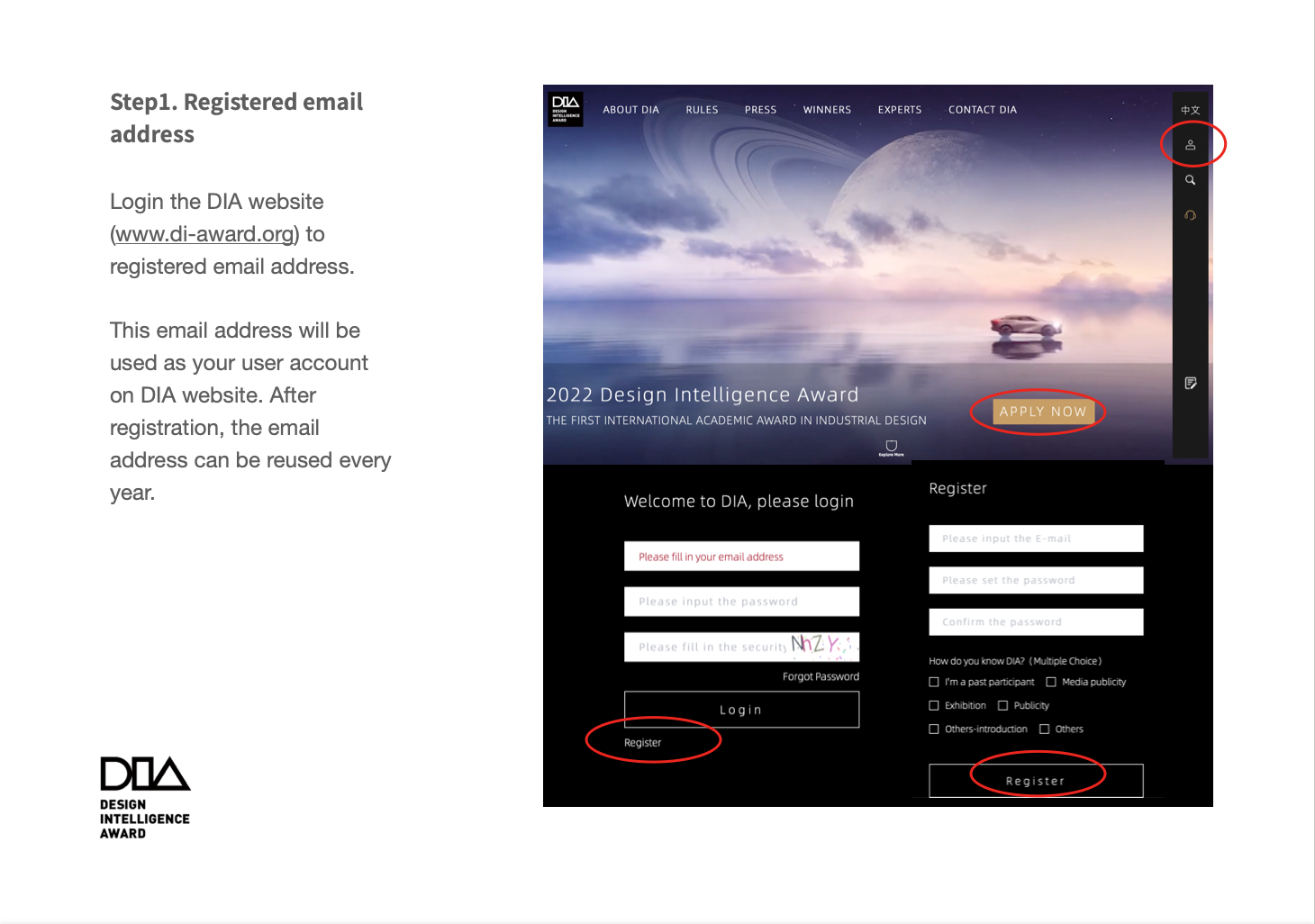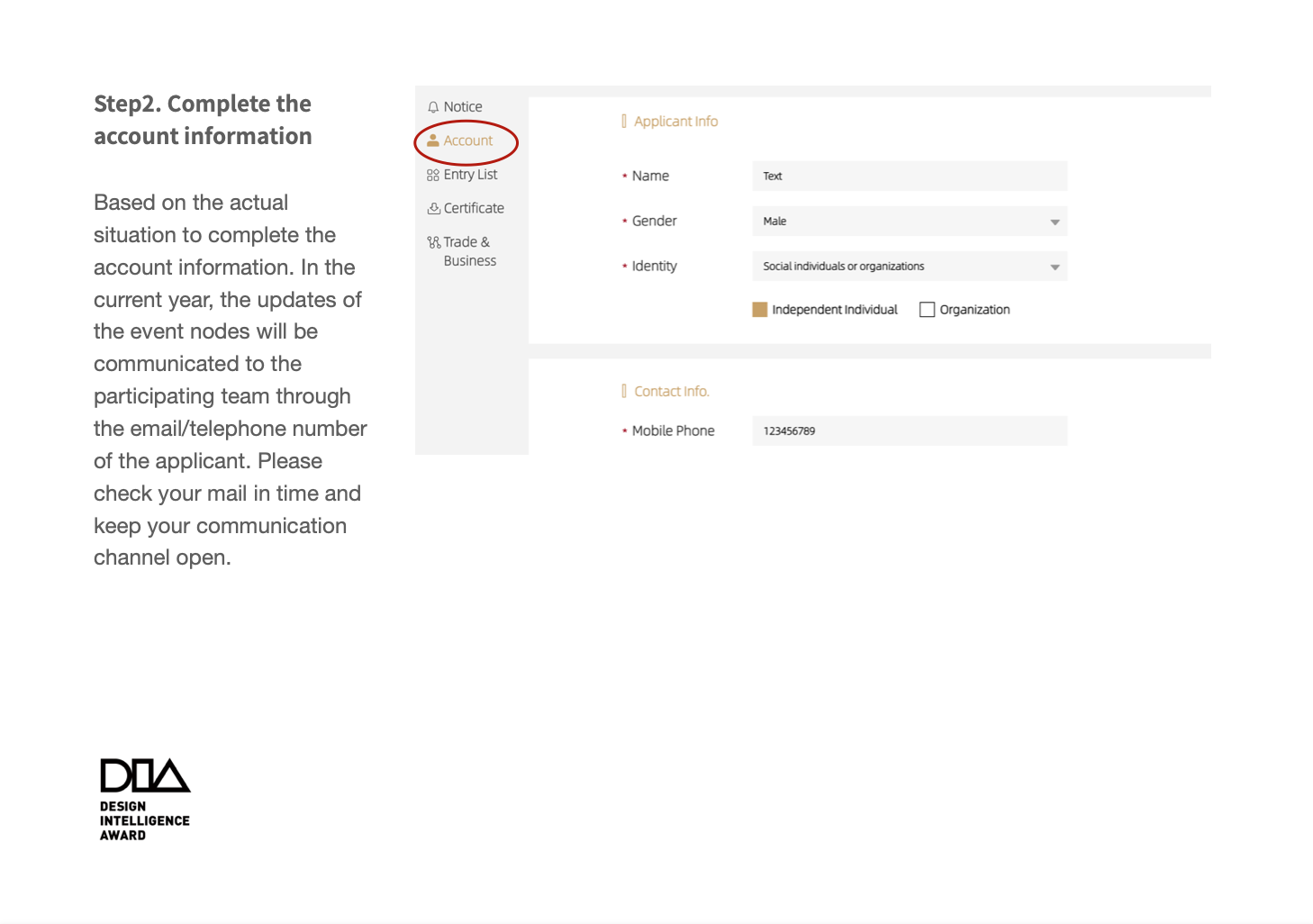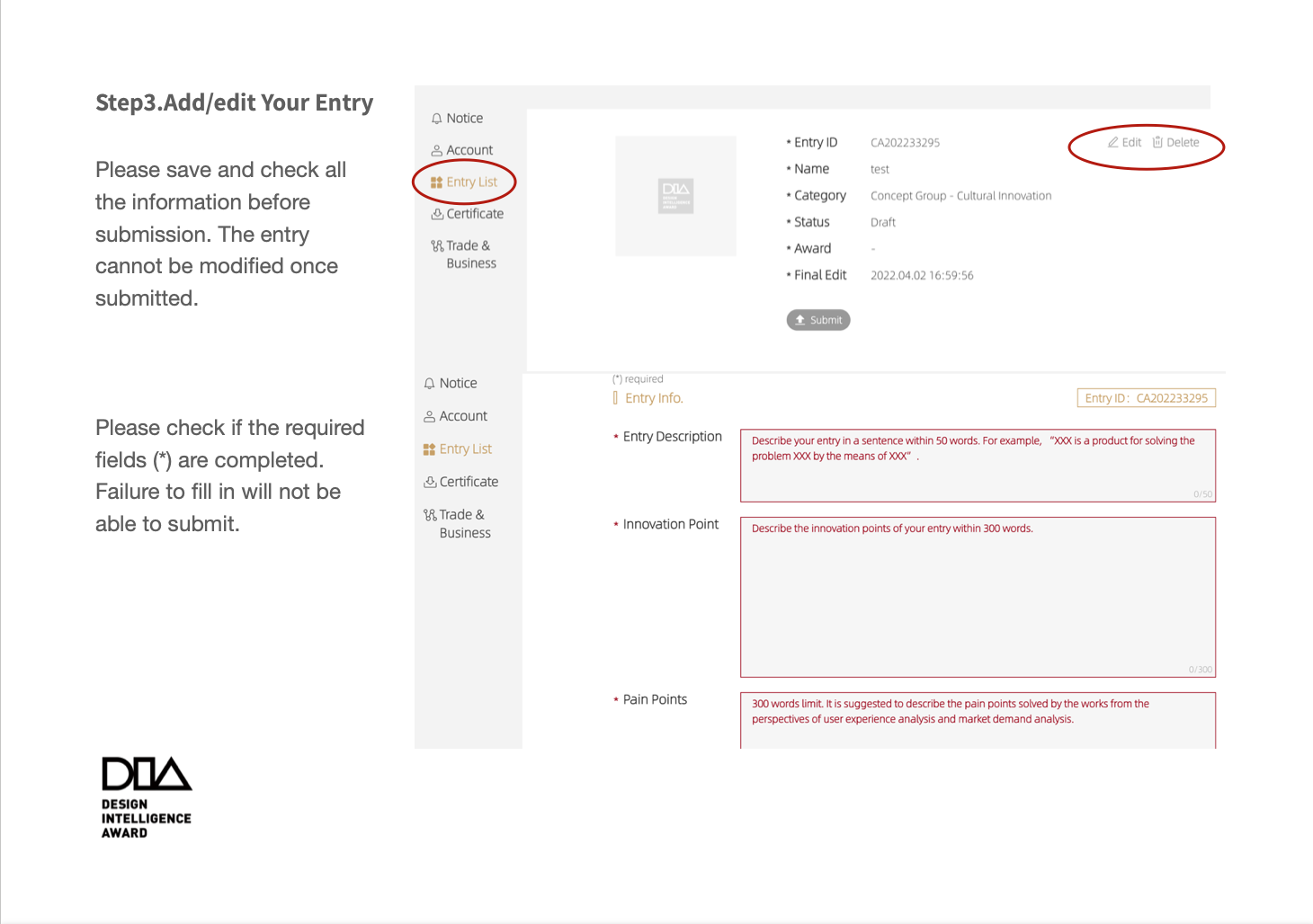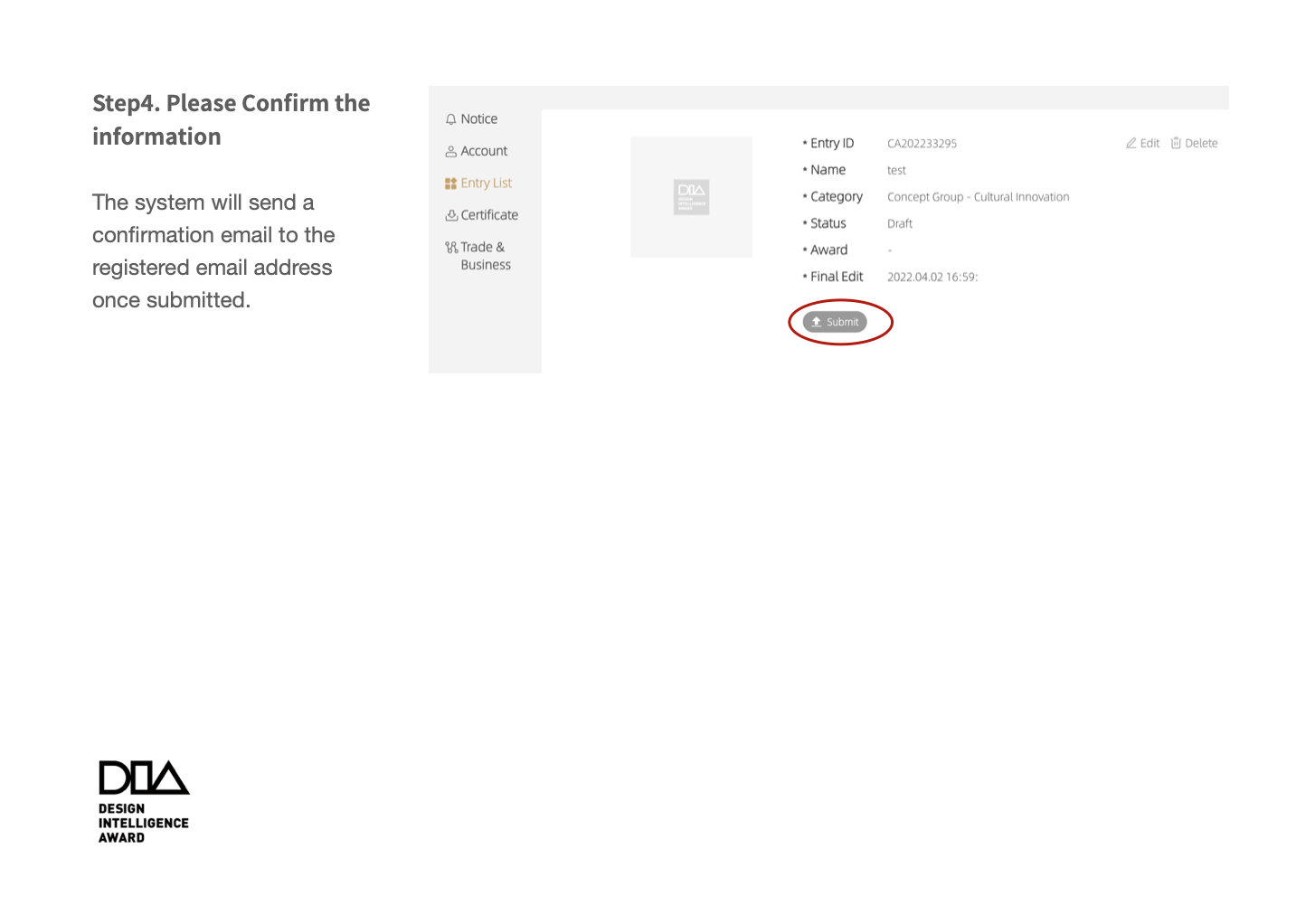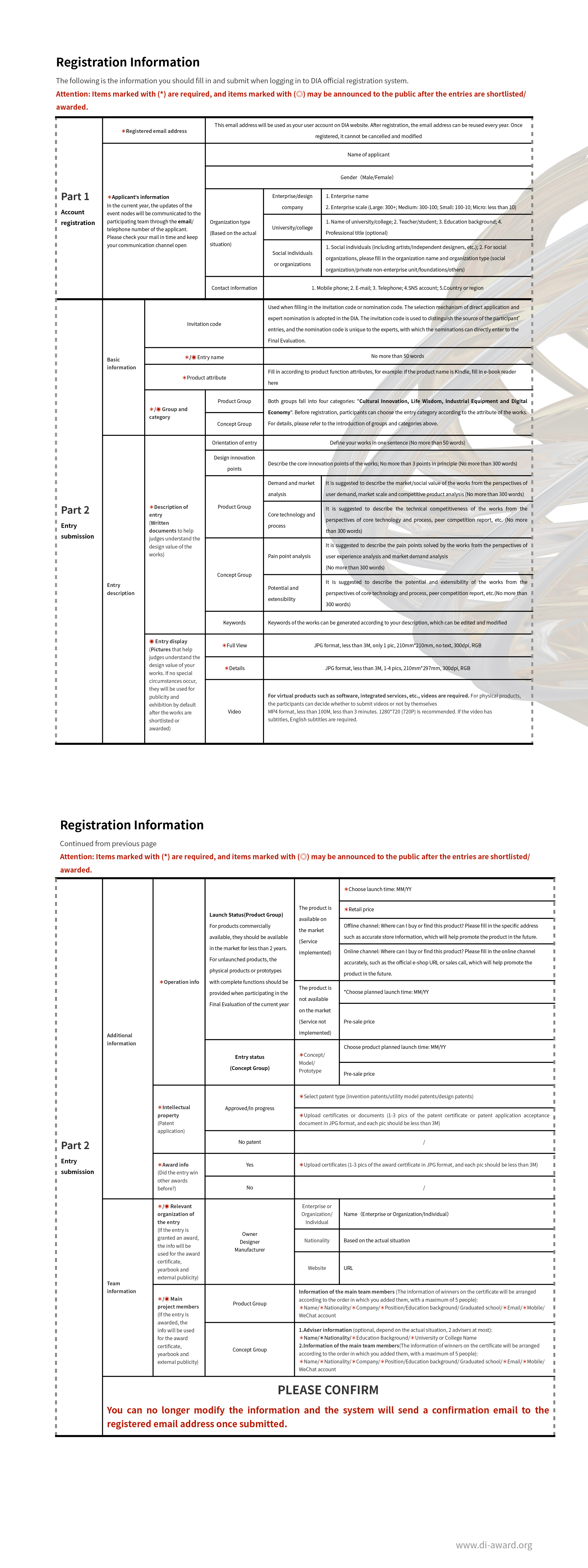
- Design Intelligence
- Group Classifications
- Entry Categories
- Timeline
- Prizes
- FAQ
- DIA Instructions for Participants
- Disclaimers
- Download
WHAT QUALITIES DO WE VALUE
PDF 2024 DIA Announcement
PDF 2024 DIA Guidelines for participants
Design Intelligence
Design intelligence is the ability to apply design thinking and methodology to a wide range of challenges and opportunities.
Design Intelligence means more than just technical skills and knowledge; it also includes the ability to understand social, cultural, and economic contexts.
Design Intelligence is increasingly important in a rapidly changing world, where the ability to innovate and adapt to new challenges and opportunities is vital. Innovation, sustainability and social responsibility are just some of the qualities that designers should possess.
HOW DO WE ARRANGE THINGS
Group Classifications
There are 2 main Groups : Products and Concepts, both open to original works from individuals, enterprises, universities/colleges and institutions:
· The Product Group is open to entries that have been commercially available for no more than 2 years, or entries that are not available on the market but for which the model product with full functions can be provided for the Second Evaluation.
· The Concept Group is open to entries that have been launched for no more than 2 years, or entries that have not been launched but can be demonstrated in real application scenario during the Second Evaluation.
*The DIA Committee observes the right to adjust the group and category of entries.
Entry Categories
We've set up four categories to cluster design into - both Groups (Product and Concept) can fall in the same entry category.
1. The Cultural Innovation category is open to products and services from the fields of culture gifts, stationery, packaging, fashion accessories, tableware, furniture and lighting, social innovation and new cultural tourism economy.
2. The Life Wisdom category recognizes the way we live as a driving force behind the ideas we create. This category is open to products and services from the fields of electronics and digital devices, household appliances, kitchen and bathroom essentials, smart home technology, elderly care products, maternal and child supplies, personal care items, pets supplies, toys and musical instruments, sports and leisure products, disaster prevention and protection products, application of new technologies and materials, etc.
3. The Industrial Equipment category looks at how production is evolving, and how new industries are emerging. This category includes is open to products and services from the fields of transportation and logistics, medical equipment, construction equipment, agriculture and forestry equipment, military equipment, office equipment, mechanical tools, robots, etc.
4. The Digital Economy category is open to products and services that can make use of data intelligence. This category is open to digital products and services from the fields of artificial intelligence, spatial calculation, smart cities, smart mobility, smart business, smart medical care, smart education, smart community, industrial Internet, virtual reality, etc.
WHAT IS THE TIMELINE
Timeline
· The application system is now open, and will close on July 14, 2024 (24:00, UTC+8).
· Late submissions cannot be accepted.
· There is no application fee.
· Logistic fees and other expenses incurred in sending entries should be borne by applicants.
- 01 Entry CollectionDeadline until Jul. 14,2024
- 02 Preliminary EvaluationJul. 22, 2024 - Aug. 2, 2024
- 03 Shortlisted Entry DeliveryAug. 26, 2024 - Sep. 13, 2024
- 04 Second EvaluationSep. 26, 2024 - Sep. 27, 2024
- 05 Final EvaluationDec. 5, 2024
- 06 DIA Award CeremonyDec. 6, 2024
*If, due to special circumstances, there is a need to adjust the event schedule, the DIA committee will provide notice in advance.
WHAT ARE THE PRIZES
Prizes
The awards are granted to winners in both the Product Group and Concept Group as follow:
. Grand Award ( 1 Winner, RMB 1,000,000/winner) is open to all entries from both Product and Concept Group
. set for the Product Group:
· 4 Gold Awards (RMB300,000/winner)
· 8 Silver Awards (RMB150,000/winner)
· 12 Bronze Awards (RMB100,000/winner)
. set for the Concept Group:
· 4 Future Talents Awards (RMB50,000/winner)
· 10 Young Talents Awards (RMB20,000/winner)
In addition, Honorable Mention Award will be granted to about 300 entries selected from the two groups.
| DIA Award Setting | |
Grand Award 1 winner, RMB 1,000,000/winner | |
Product Group | Concept Group |
Gold Award
4 winners, RMB 300,000/winner
Silver Award
8 winners, RMB 150,000/winner
Bronze Award
12 winners, RMB 100,000/winner
| Future Talents Award
4 winners, RMB 50,000/winner
Young Talents Award
10 winners, RMB 20,000/winner
|
| Honorable Mention Awards | |
*All bonuses are considered pre-tax income. In accordance with the relevant fiscal and taxation regulations and procedures of the People's Republic of China, the actual bonus amount will be disbursed to the winners after deducting the corresponding taxes and the costs associated with the production of trophies and certificates of award.
FAQ
Questions About Entries Registration
DIA Registration Instruction
Required Materials for Registration
DIA INSTRUCTIONS FOR PARTICIPANTS
PDF
2024 DIA Instructions for Participants
1. Protection of Intellectual Property Rights
2. Publicity and Confidentiality
3. Registration Information
4. Registration Qualification
5. Results Notification
6. Delivery
7. Return
8. Donation and Collection
9. Final Evaluation and DIA Ceremony
10. Certificates, Trophies and Bonuses
11. Final Interpretation
DISCLAIMERS
PDF
2024 DIA Disclaimers
2024DIA Disclaimers
DOWNLOAD
- 2024 Design Intelligence Award Announcement
- Logo Standards Specification of 2023 Design Intelligence Award
- 2022 DIA-logo
- 2024 DIA Guideline for Participants
- Example of 2024 DIA Registration Process
- 2024 DIA Instructions for Participants
- 2024 DIA Disclaimers
- Declaration of Intellectual Property Rights of DIA Entry
News
Subscribe
Copyright © 2024 Design Intellgence Award . All rights
reserved

